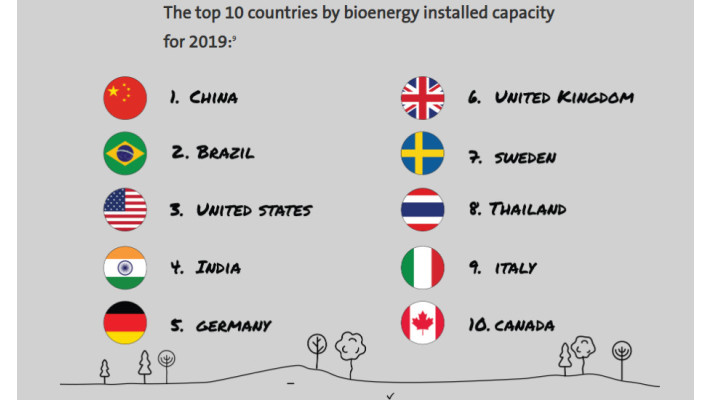The evolution of bioenergy
Compared to fossil fuels, which are created over millions of years and are essentially non-renewable, bioenergy is created in a much shorter timeframe through photosynthesis (the process that enables plants to grow), making it a renewable source of energy. Bioenergy is the only renewable energy that converts into liquid fuels.
How does it work?
Bioenergy is a type of renewable energy that's derived from biomass (plant-based materials). A highly versatile energy source, biomass can be burned to create heat or generate electricity. Biomass can also create bioproducts like paper and fuel transportation through biofuels; the two most common being ethanol and biodiesel.
Timeline of bioenergy
Palaeolithic Age.
Cavemen burn wood and other forms of biomass for heating and cooking.
1796.
German-Russian chemist, Johann Tobias Lowitz, invents pure ethanol, a biofuel. Ethanol is a colourless liquid made from sugar or starch via fermentation.
1800s.
People start to fuel their lamps with biofuels like vegetable oil and animal fats.
1876.
German inventor, Nikolas Otto, invents the four-stroke internal combustion engine. It runs on the biofuel, ethanol.1
1896.
German inventor, Rudolph Diesel, develops and patents the diesel engine.2 Because petroleum isn't available, Diesel creates his own fuel called biodiesel (made from vegetable oil).
1896.
Henry Ford builds his first automobile, the Ford Quadricycle Runabout.3 It runs on an ethanol-powered motor. In 1908, Ford develops the Ford Model T - it runs on ethanol, gasoline or a combination of the two.4
1910.
Coal-powered electricity begins to displace wood as a fuel source for residential heating and cooking.
1919-1933.
Prohibition prohibits alcohol in the United States. Unless mixed with gasoline, ethanol is no longer an acceptable fuel to power cars.
1945.
The post-war era decreases the need for biofuels like ethanol. Trucks and cars almost exclusively use fossils fuels like petroleum, as it's considered cheaper and more efficient.
1950s.
Gas and coal-powered electricity replaces wood as the primary source of energy for heating and cooking in households around the developed world.
1985.
The world's first biodiesel commercial manufacturing plant opens in Austria.5 In the next decade, further plants will open across Europe and in the United States. The growth of biodiesel is driven by countries seeking to reduce their dependence on imported fossil fuels.
1999.
The city of Kristianstad in Sweden takes the first steps to one day becoming fossil fuel-free. The city has invested heavily in renewable energy, including two biofuel refineries that fuel their cars and generate electricity.6
2020.
Today, the use of biofuels has stagnated because gasoline and diesel are cheaper than biofuels to produce. What's more, biofuels use crops that could be used for food, causing a production choice between food and fuel. However, some countries are turning the waste from plants like sugarcane into liquid fuels and chemicals.7
The future of bioenergy
The future of bioenergy is not as bright as other forms of renewable energy due to their high cost of production. This barrier to entry forces most investors and governments away from heavily investing in biofuels like ethanol and biodiesel.
Although, as previously mentioned, turning plant waste into biofuel (closed loop biofuel) is a viable fuel method, which many countries, including China are exploring.8
More about evolution of renewable sources on https://www.comparethemarket.com.au/energy/history-renewable-energy/

Sep 28, 2020
https://www.comparethemarket.com
